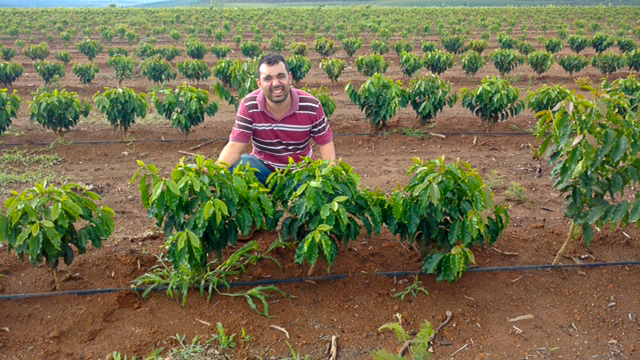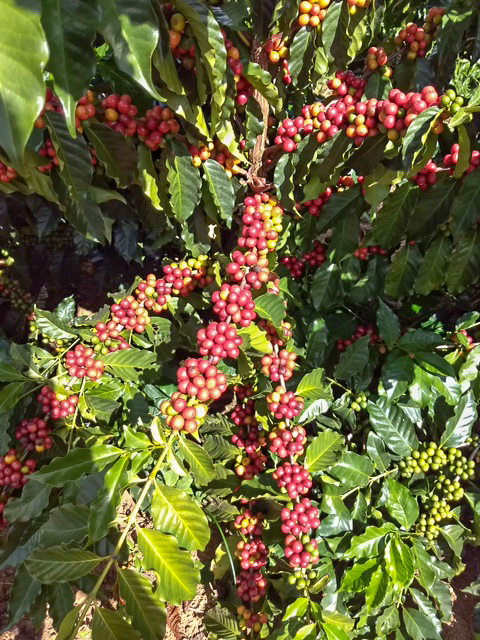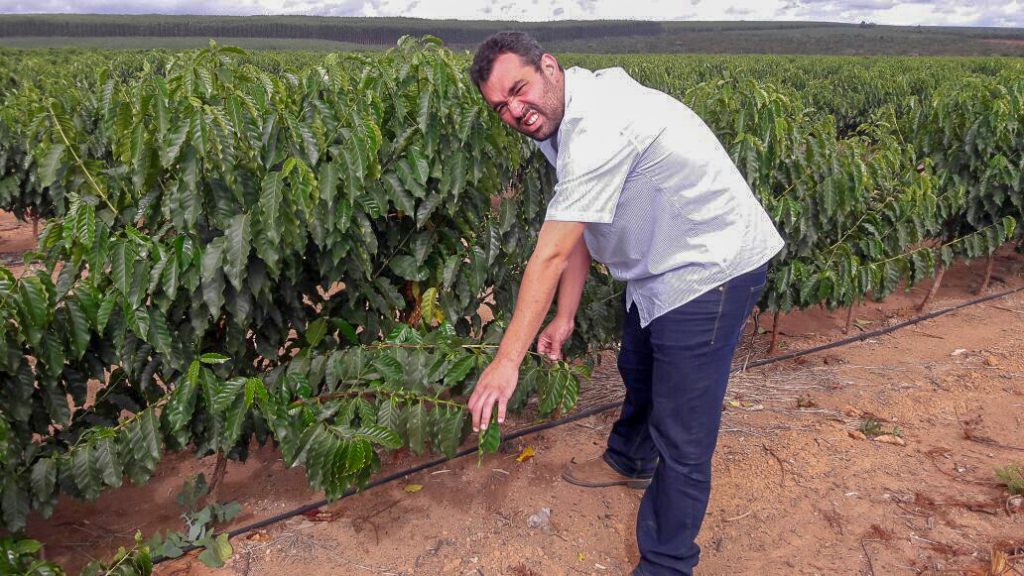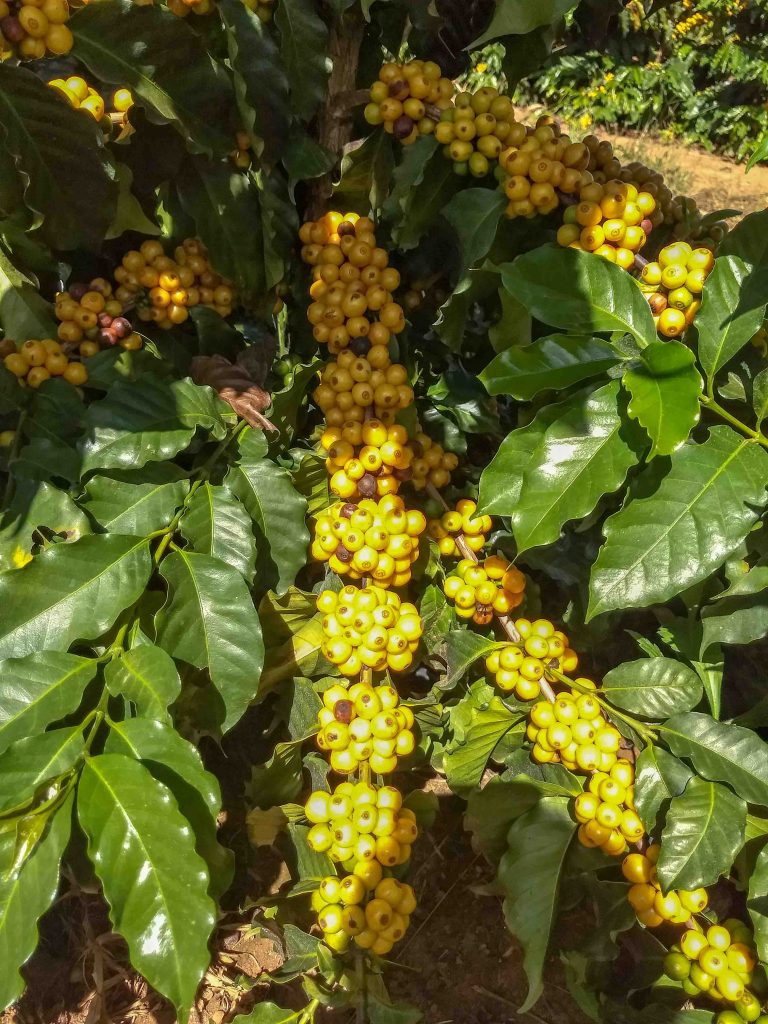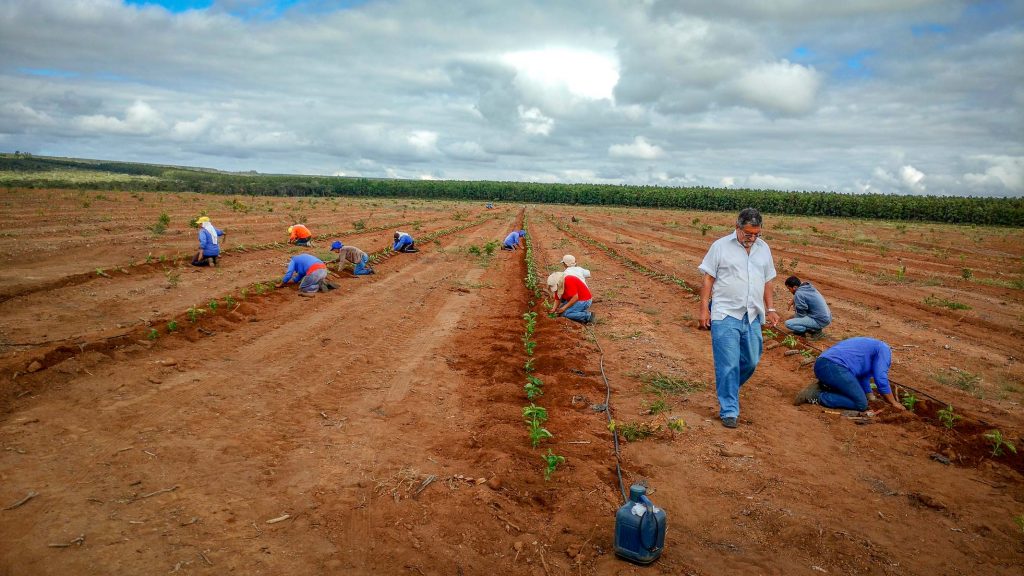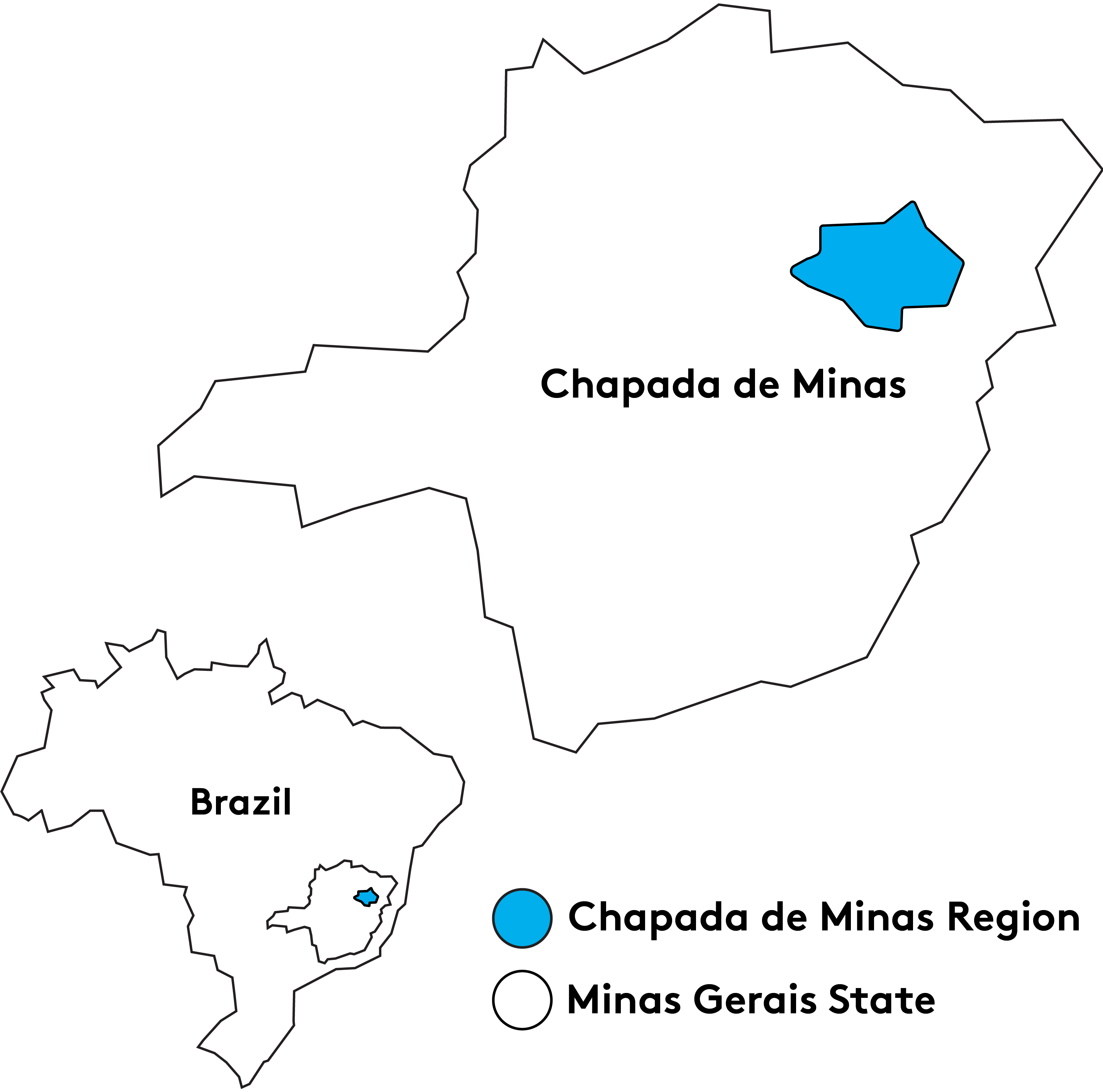Coming from a traditional coffee producing family, Carlos Eugênio resolved to study agronomy and follow in the footsteps of his father, Antônio Pimenta, also an experienced agronomist and passionate about coffee growing. After many years producing coffee in Capelinha, Minas Gerais, the family decided to explore new challenges and agricultural horizons where it would be possible to grow specialty coffees and make use of technologies as tools for increasing quality.
With this outlook, Fazenda Prevenda was acquired in 2014, where only a few years earlier the latest coffee farming technologies had been implemented, including innovative irrigation systems, new coffee varieties, balanced fertilization techniques, and advanced soil conservation methods. The result could be nothing other than the production of quality coffee.
Situated in the Jequitinhonha Valley in the city of Leme do Prado, Minas Gerais, the property—in addition to producing quality coffees—acts on its principles of environmental conservation and social support in the surrounding municipality. The farm participates in social activities and generates regional employment, in this way bringing dignity and prosperity to the local population.
Fazenda Prevenda is 233 hectares in total, with 60 hectares planted in Yellow Bourbon, Catucaí, Red and Yellow Catuaí. The average temperature is 20 degrees Celsius and the trees flower in September and October for the harvest in June and July. Annually, the farm produces 2400 bags of coffee.
Read more about the coffee regions of Brazil.
